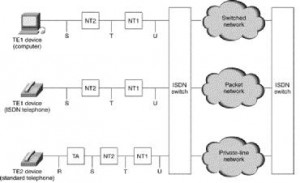Wireless Broad Band Services provides a more bandwidth for the transmission of data in contrast to the standard service of the telephone. ISDN, xDSL, B-ISDN and ATM are some of the involved technologies. The quality of service depends on a number of factors like integrity, privacy, security, cost and integration.

History of wireless broadband services:
The presence of a phone network that is totally inefficient.
Using pure analog systems that are prone to noise and breakdown.
Data transmission over a long distance was very irritating.
Conversion of internal connection to the packet based and digital switching system, the telephone system gradually started. ISDN is an integrated digital network where the same switches and digital paths are used to incorporate various services like data and telephony. Data, permits voice, text, music, graphics, video and other material sources of transmission over the telephone wires that are already existing.
Objectives
Smooth migration
Support multiplexed
Carry voice, images, data and videos.
Tariffs that are related to costs
Transparency
Standardization
Competitive functions separation
Leased services
Advantages of ISDN are as follows:
It provides high quality sound and database
It allows several devices to share a single line
Simultaneous data and voice transmission
Digital calls over the telephone connection free from the background noises
Advanced features like call waiting, call hold, and caller ID are also available.
It also has some of the drawbacks like:
Cost of wiring
Limited availability is more costly that the analog service
More costly service charges
DSL is also called digital subscriber line and it is often jot down as Xdsl. the X stands for S, I, A, V, RA and H. Megabits capacity is available in hundreds. Cable modems make use of coaxial cable that helps in providing various channels. Simplicity is the only drawback of this system ad they works only in a single downstream direction.
Download Personal Wireless Broadband Services PPT Presentation
